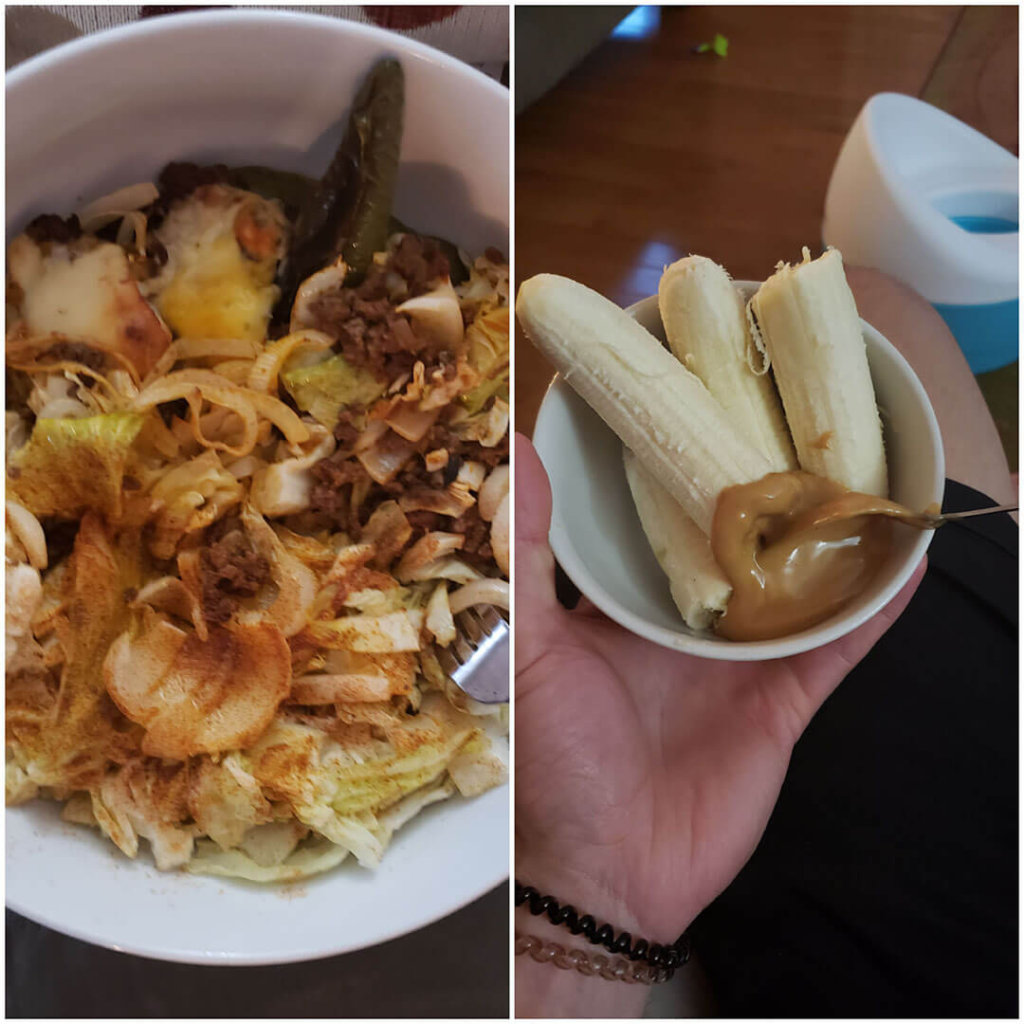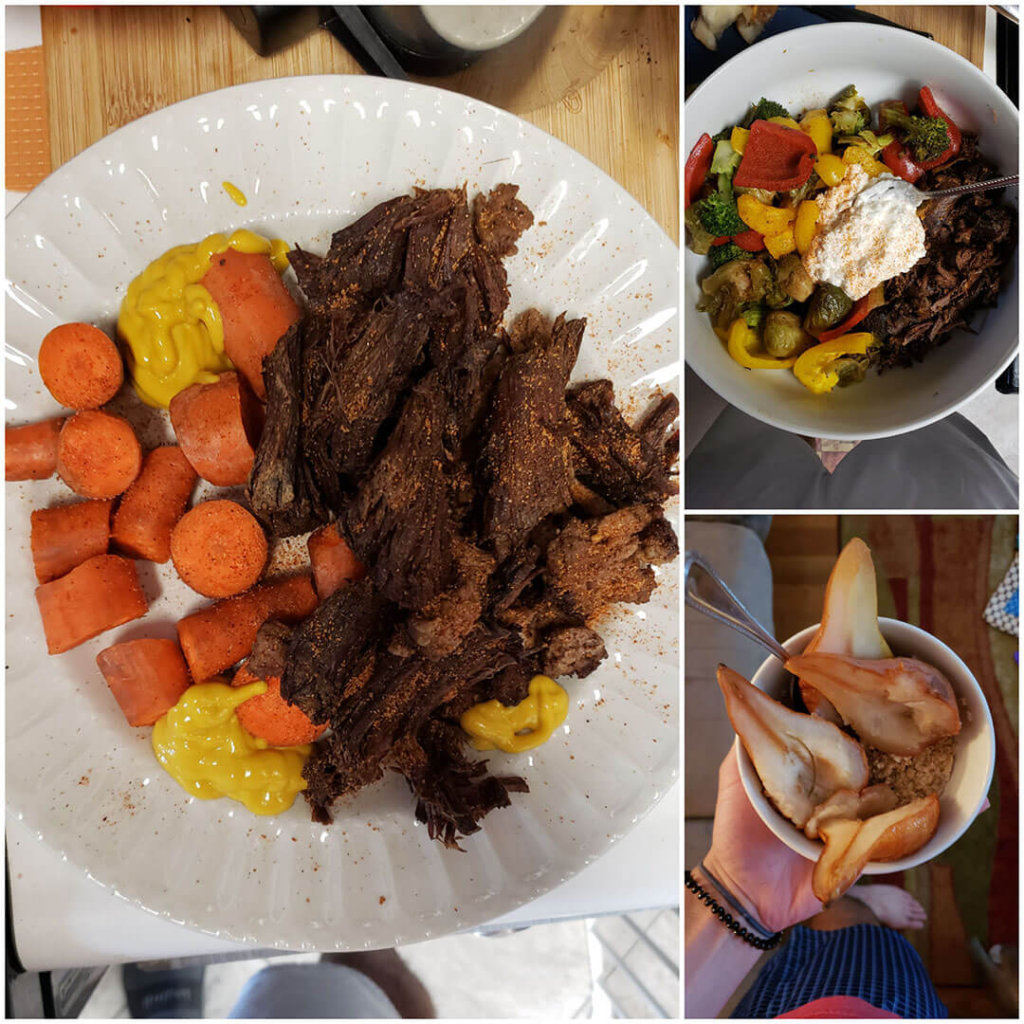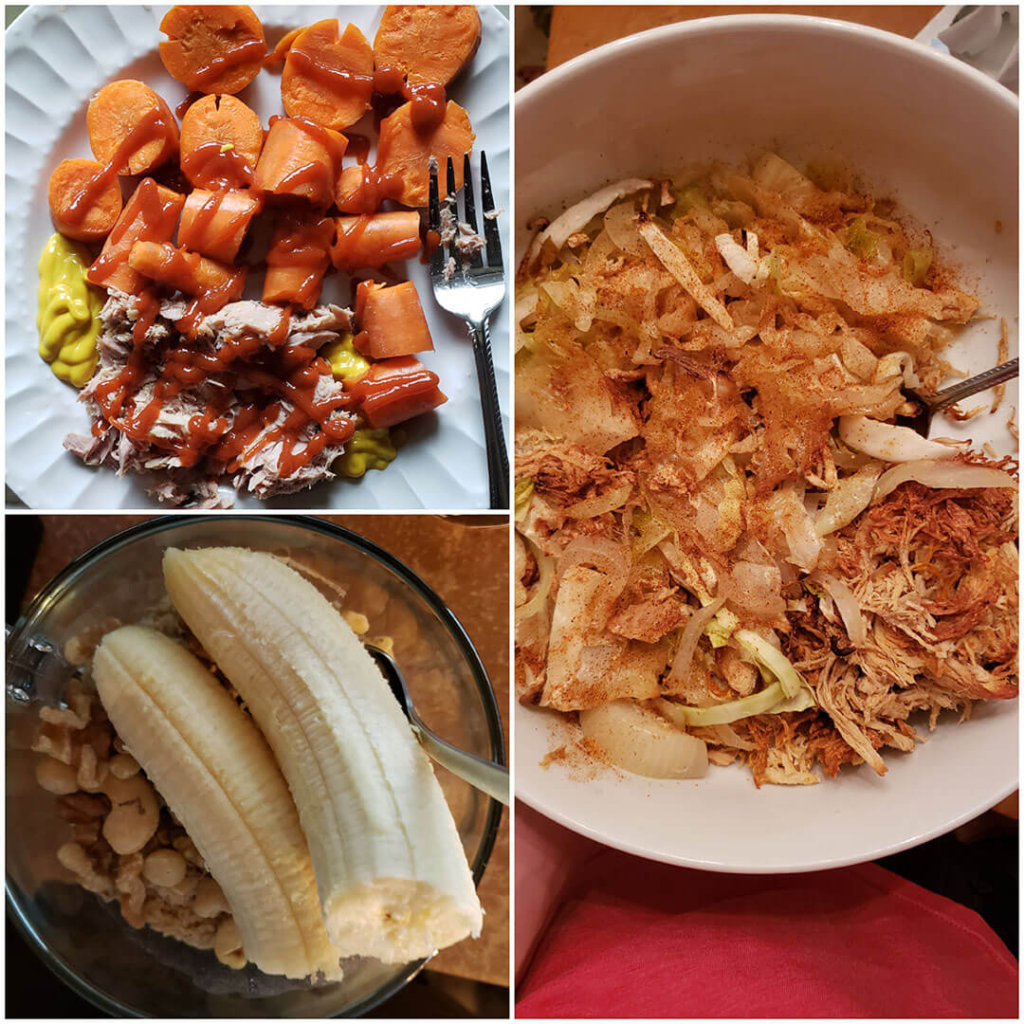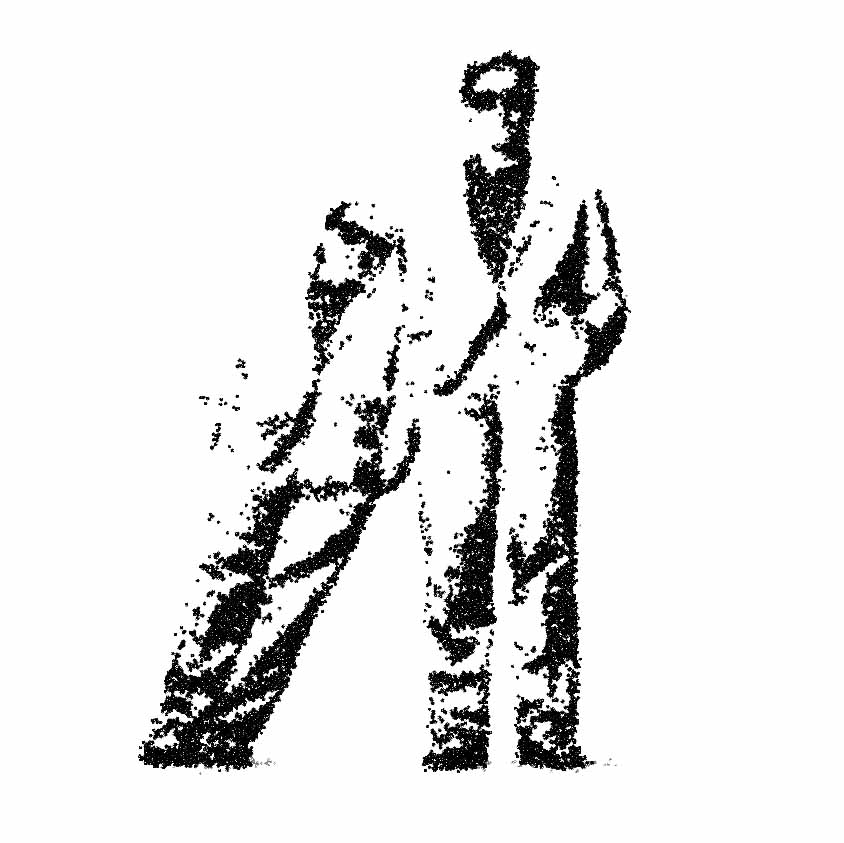Two Meal Muscle
Can you create a two-second version of TMM?
I bounce between surpluses and deficits throughout the week, and I bias toward my objective.
- If I want to gain, I’ll have more maintenance/surplus.
- If I want to lose, I’ll have more deficit days.
Troubleshooting is rather simple, too:
If I’m trying to lose fat and I’m not losing fat, then I know I need to either (a) string together more deficit days, or (b) eat less starchy-sugary carbs, fats, and non-lean proteins.
If I’m trying to lose fat and I’m losing fat too quickly, then I know I need to either (a) have more maintenance days, (b) have more surplus days, or (c) include more starchy-sugary carbs, fats, and non-lean proteins into upcoming fat loss days.
If I’m trying to gain and I’m not gaining, then… well, this never happens. because I drink beer. Lots of beer. This keeps me jigglier than I’d like to be.
Do you ever eat “unhealthy” foods?
For the most part, I eat healthy homemade meals, but I’m no saint. I eat nachos. I eat pizza. I drink beer… I drink more beer than any human should. I’m not proud of this, but, whatever.
I can “indulge” and stay lean.
It’s not magic.
It’s math.
Everything routes back to energy. If you control your energy intake, you’ll control your body composition. Beer is alcohol, and alcohol contains energy.
Remember, one ⚡ represents 100 calories of energy. One bottle of DogFish beer probably contains around 200 calories, on average. This means one beer is ⚡⚡, which means that, if you wanna drink, you need to keep your energy intake otherwise to a minimum. This is difficult, as drinking alcohol usually pulls you towards food with a bunch of energy.
No one wants to eat broccoli when they’re drunk. They want to eat greasy starchy food. This is not a winning combo.
What’s the best kind of alcohol to drink when you’re trying to get or stay lean?
Alcohol contains energy, but some people say your body can’t really break down and use alcohol for energy very well. In general, if you’re trying to stay lean and you want to imbibe, you’re best off drinking beverages without added sugars. Stick to the hard stuff: tequila, vodka, whiskey, etc… Drink these straight or use a low-sugar mixer, like club soda or some kind of flavored selzter water.
Light beer is obviously the best kind of beer to drink to keep your energy intake under control.
Ultimately, though, you can drink whatever you want… you just have to own the consequences. I’m a beer nerd. I drink craft beer. This is probably the worst thing you can drink. I own the consequences by managing ⚡ as best I can otherwise. This usually means Going Plaid and leaning into a faster fat-loss approach.
In general, there’s a simple relationship between my alcohol consumption and my clean bulking success. When I drink more, I can’t clean bulk. I’m too busy trying to save face. Also, my energy intake consists of poison (!) instead of foods that nourish my body.
Is TMM a form of intermittent fasting?
Yes. Two Meal Muscle was born from an intermittent fasting experiment. Intermittent fasting is deliberately NOT eating (or limiting energy intake) for an extended period of time. This is a vague definition, but it’s vague by necessity. Intermittent fasting is a category, not an entity. There is no singular intermittent-fasting strategy.
I initially experimented with 16/8 intermittent fasting, which means, every day, there’s a 16-hour fasting window, followed by an 8-hour feeding window.
- Feeding window: when you eat.
- Fasting window: when you don’t eat.
Although there aren’t set-in-stone times for each of these windows, this is the most common set-up:
- Feeding window: 12pm-8pm
- Fasting window: 8pm-12pm
In other words, don’t eat anything super late at night and don’t eat anything in the morning after you wake up. Make lunch your first meal.
I started 16/8 intermittent fasting in 2011, partly out of curiosity, and partly out of necessity. At the time, I broke my foot in five places. I was a phys ed teacher, on my feet (foot, rather) all day. The foot inside of my cast became painfully swollen. As an insult to injury, my healthy foot started to break down. It was doing the work that two feet were supposed to be doing. It was constantly sore.
The hours I wasn’t working, I was on the couch. Being hungry was nothing compared to the pain I was in. I couldn’t motivate myself to hobble around my kitchen in extreme discomfort to cook a meal. Despite being an avid fan of breakfast, I stopped eating breakfast.
I stuck with 16/8 intermittent fasting after my foot healed. I lost fat. I built muscle. I was in the best shape of my life. I attributed my results to 16/8 intermittent fasting.
Back then, intermittent fasting had a certain mystique. It was new. It was unknown. People said the fasting window expedited fat burning, among other things. There was plenty of propaganda powering its rise to popularity… plenty of reasons people like me had thought we stumbled upon something magical.
We didn’t. Most research suggests that intermittent fasting isn’t the all-powerful beast it was thought to be. There may be some health benefits to fasting (autophagy), but there don’t seem to be any body composition benefits.
At this point in my life, I stick to the 16/8 structure out of superstition. And comfort. It’s what I’m used to. It facilitates backloading. I have no reason to change.
How did you start fasting? Any tips?
I started fasting because I had no choice. I don’t think I would have been able to will my way into life without breakfast. I used to wake up at four o’clock in the morning in order to eat breakfast before my college internship; breakfast was serious business.
Here are a few tips to help you with fasting, if you’re interested in trying it out:
First, talk to your doctor. Because, liability.
Second, use coffee or tea to your advantage. Both will blunt hunger and help you get through the fast.
Third, realize you aren’t dying. Unless you have some kind of abnormal metabolic condition, you can survive three weeks without food. Missing breakfast won’t kill you.
Fourth, stay busy. The best way to get through your initial fasts is to forget you’re fasting. Stay active. Put yourself in a situation where you can’t eat.
The day of my first ever 24+ hour fast, I went golfing in the morning. I didn’t eat before I left. I didn’t have anything to eat on the golf course. The act of golfing kept my mind off of food.
Fifth, maybe don’t fast. Remember, there’s nothing special about fasting, it’s simply a way to facilitate further backloading.
Can you show me what you usually eat?
Sure.
Slow fast-loss days:
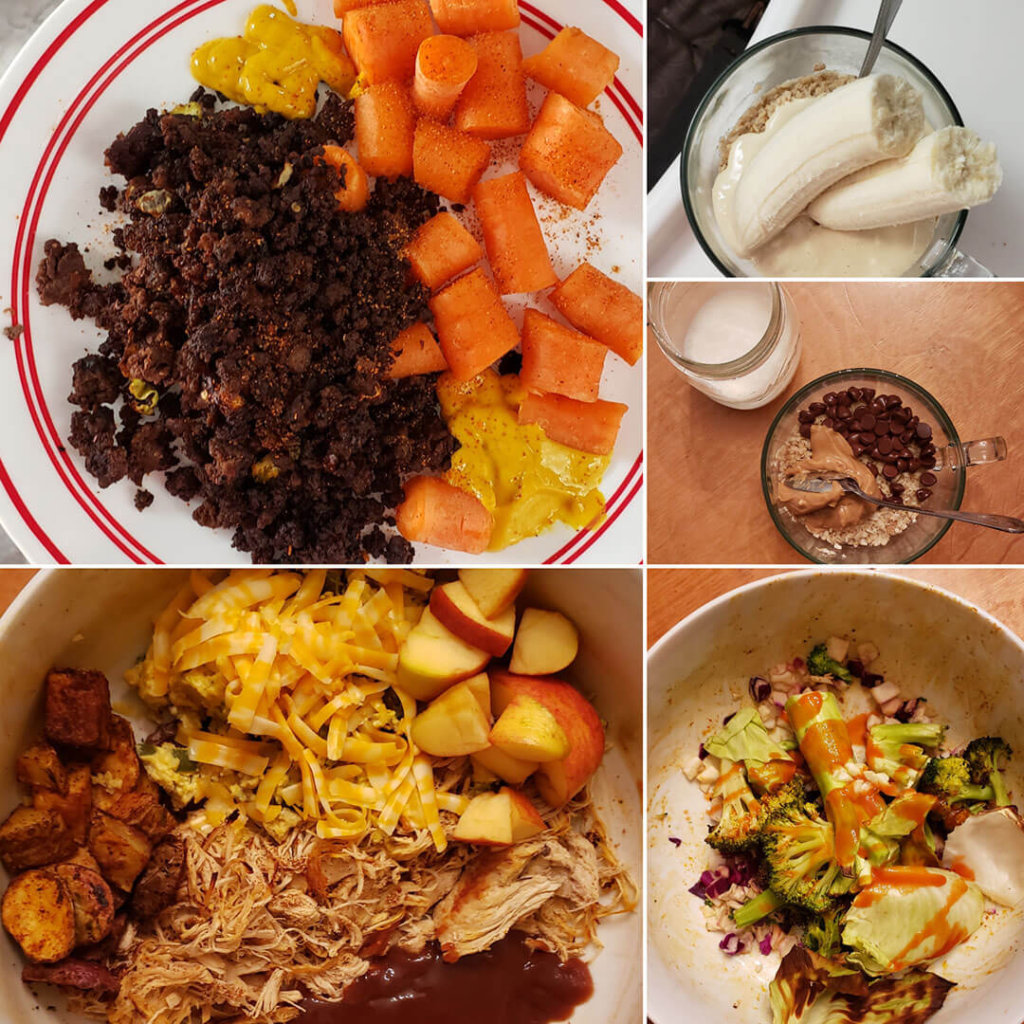
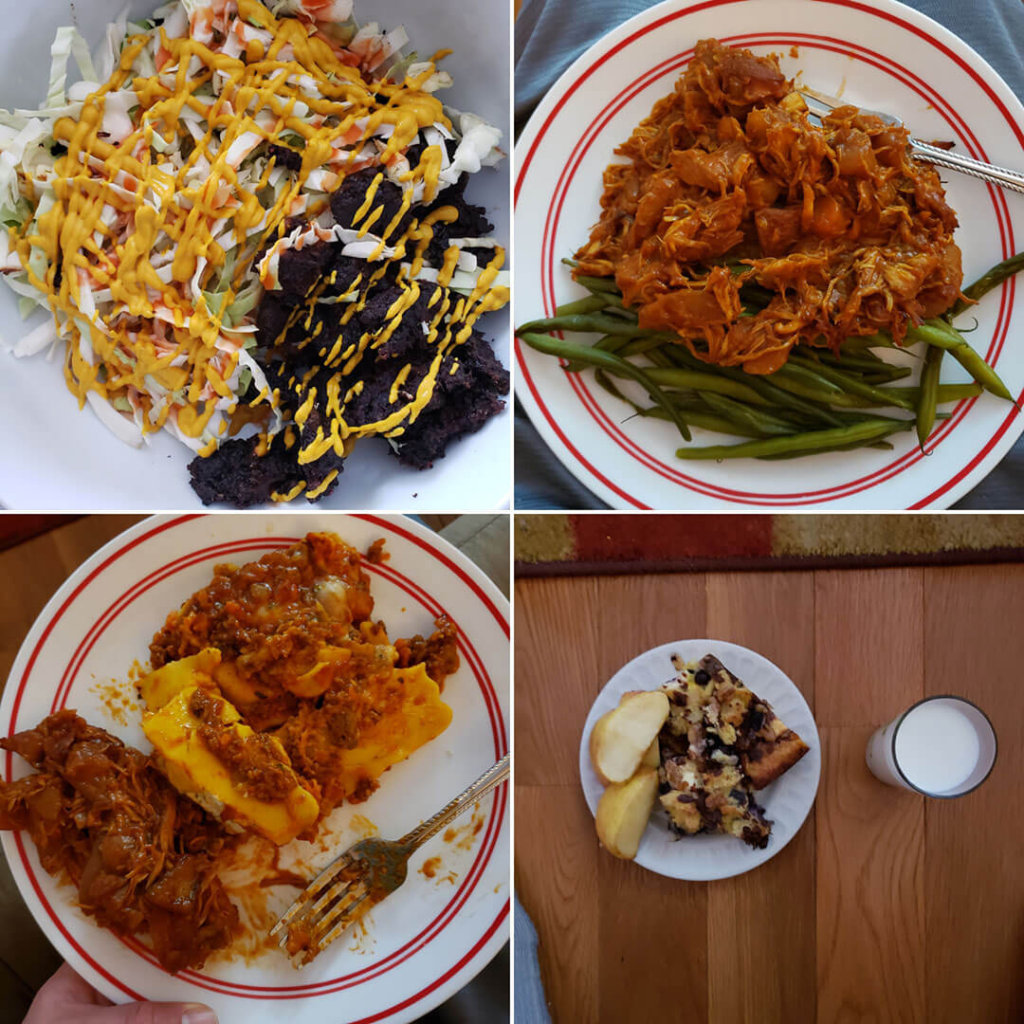
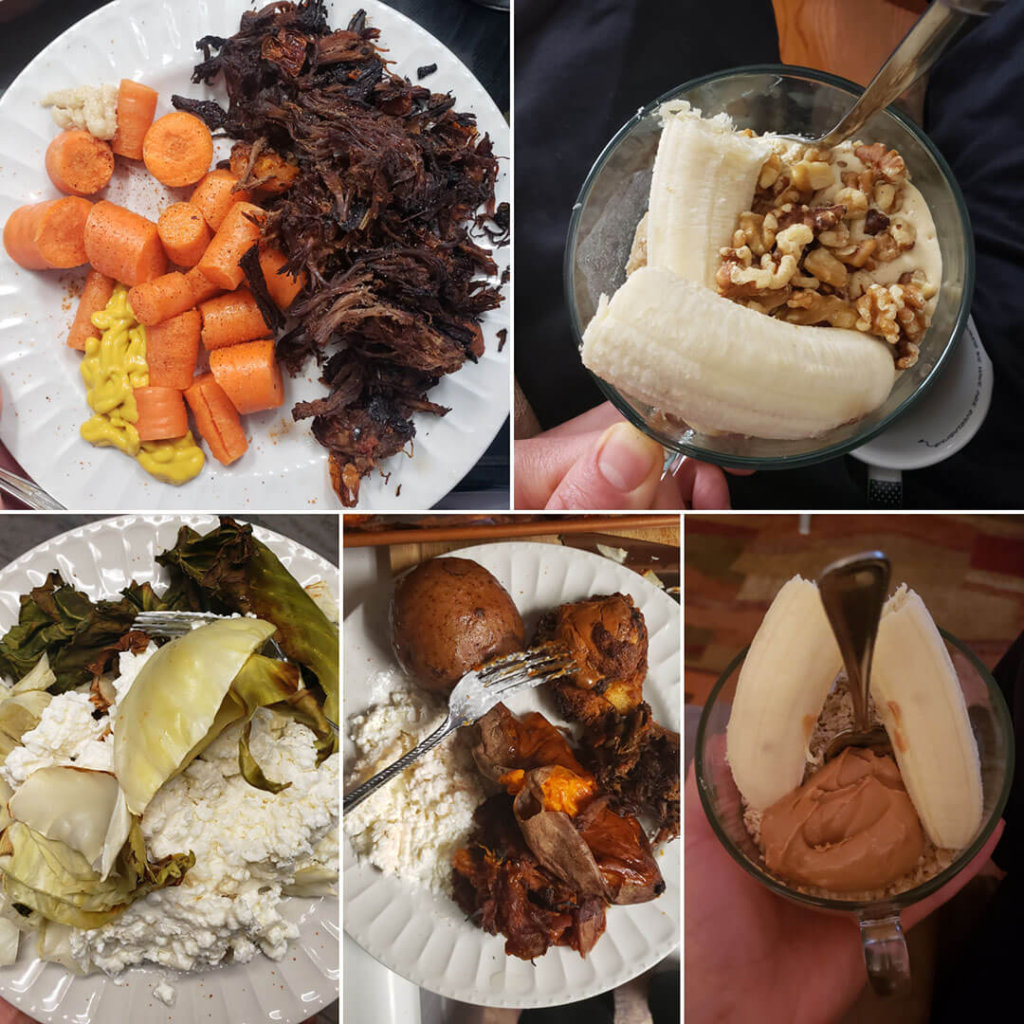
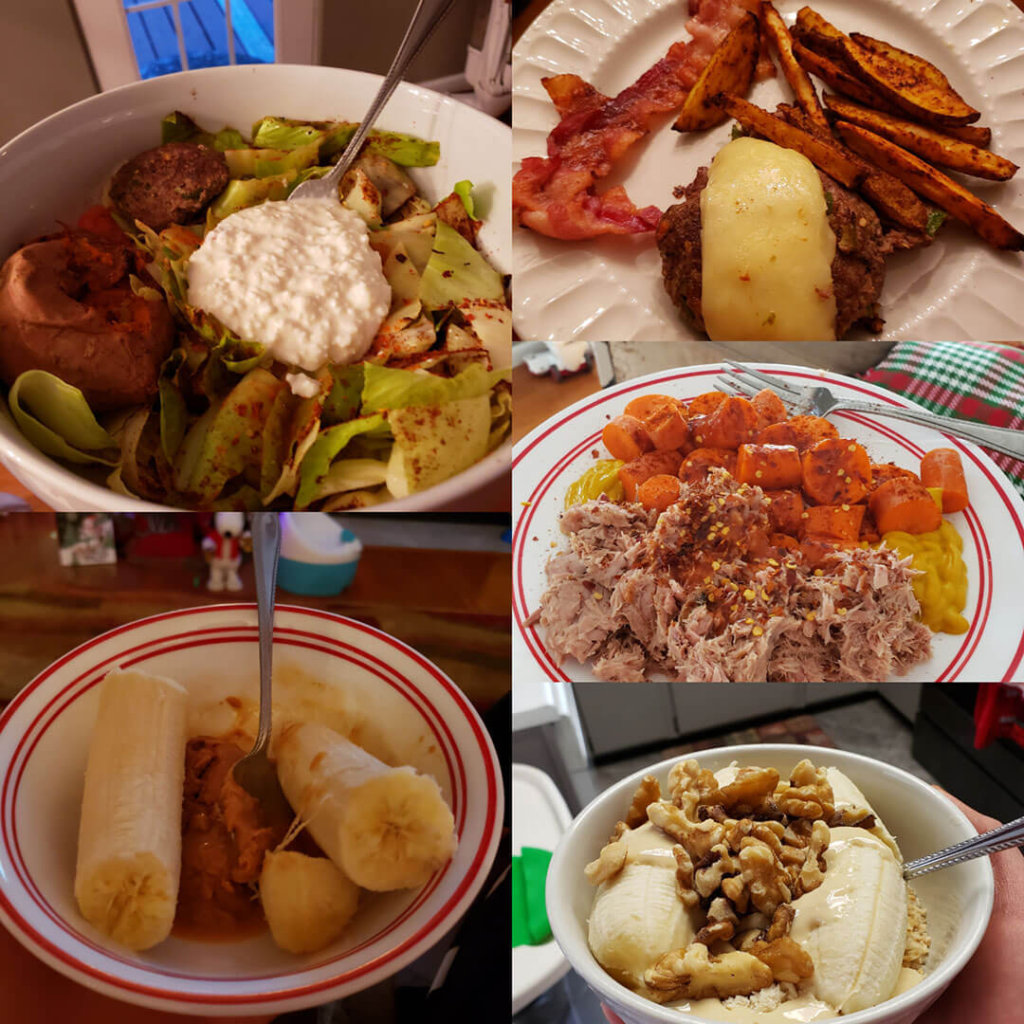
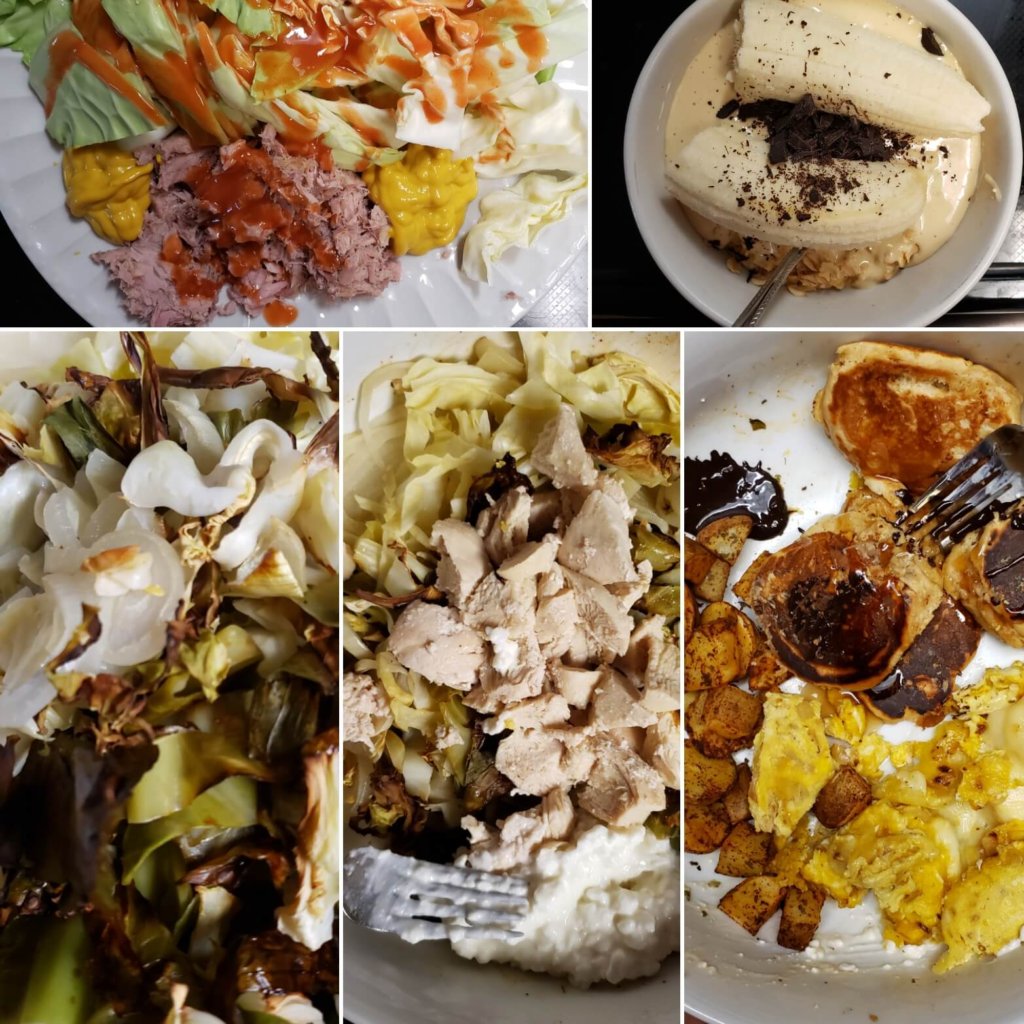
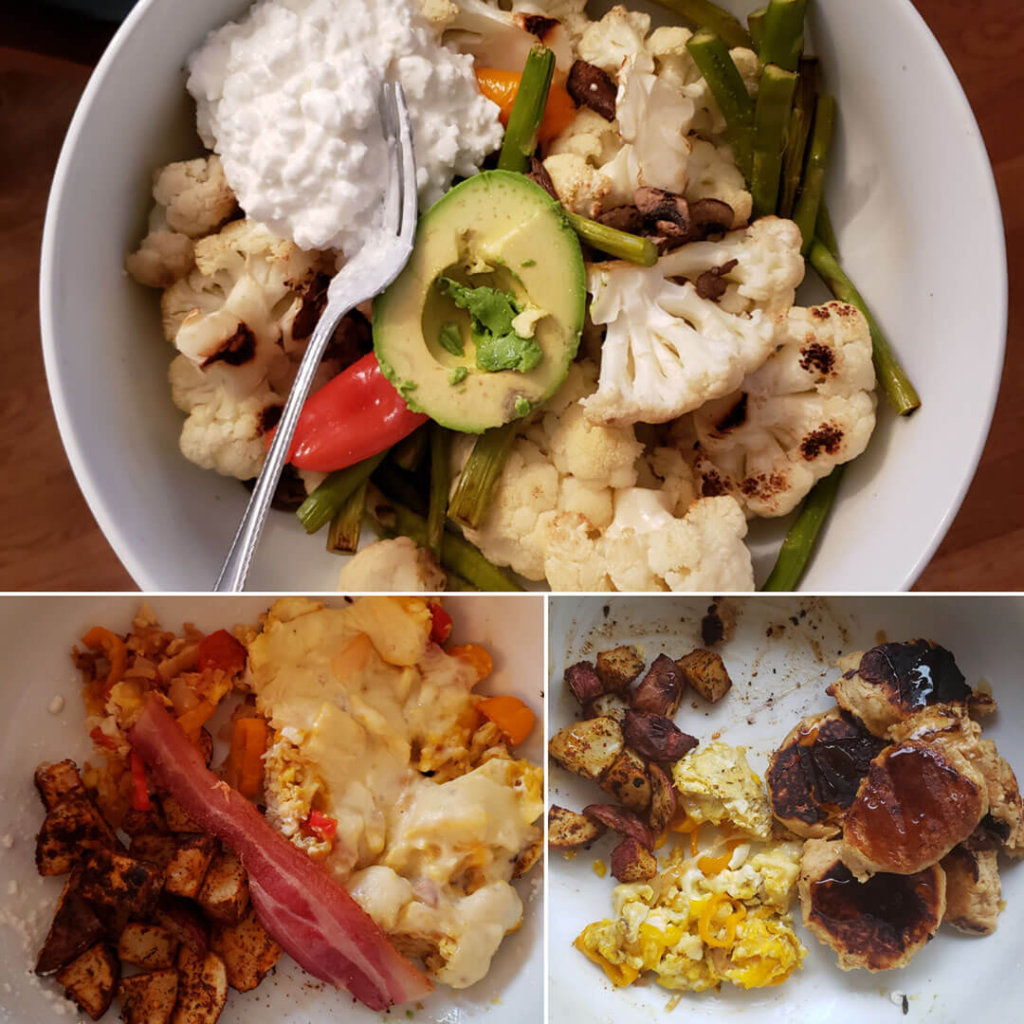
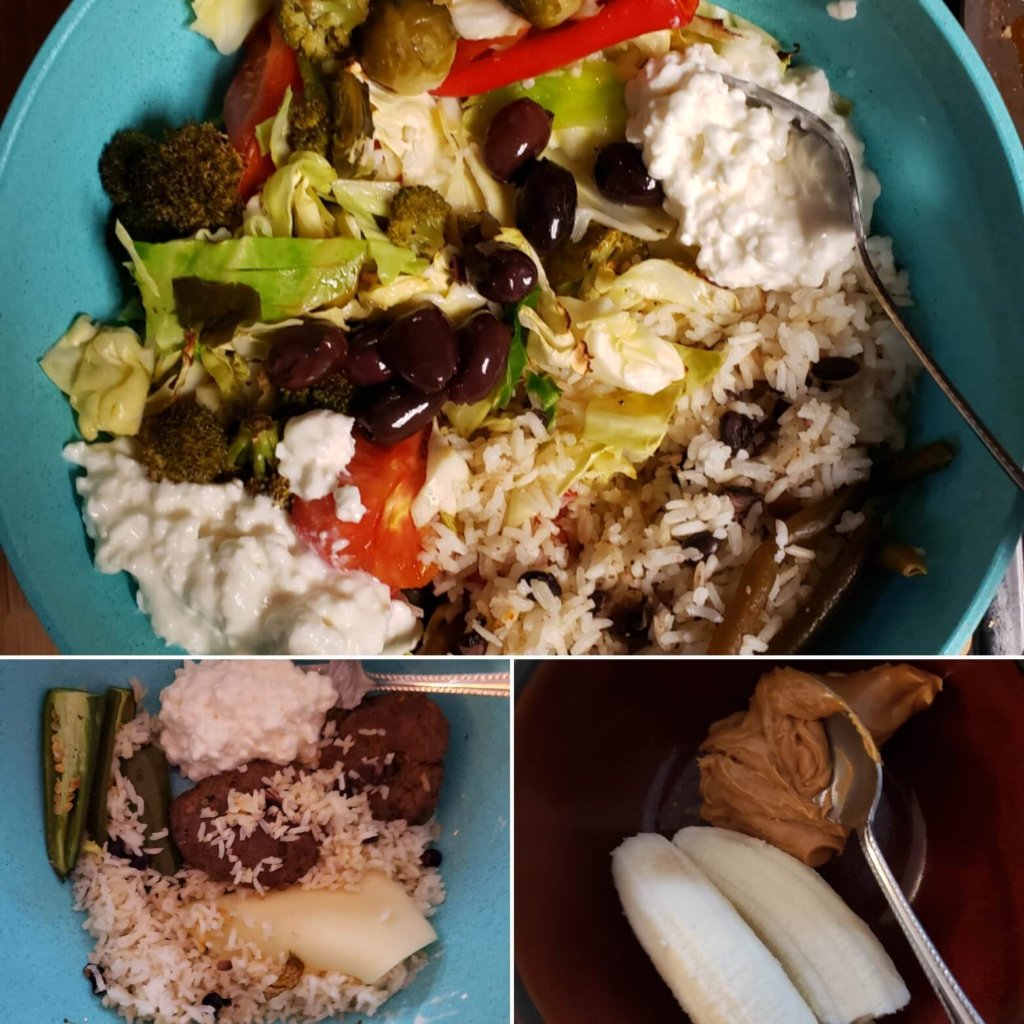
Fast fat-loss days:
